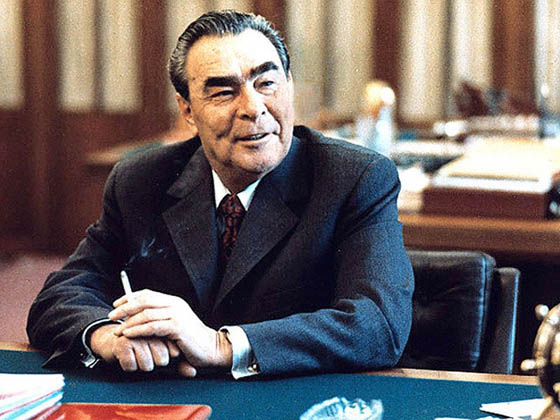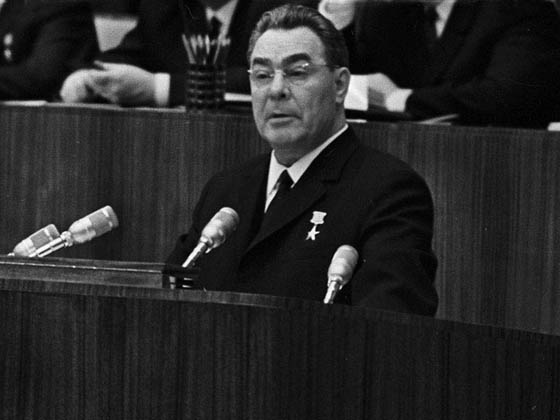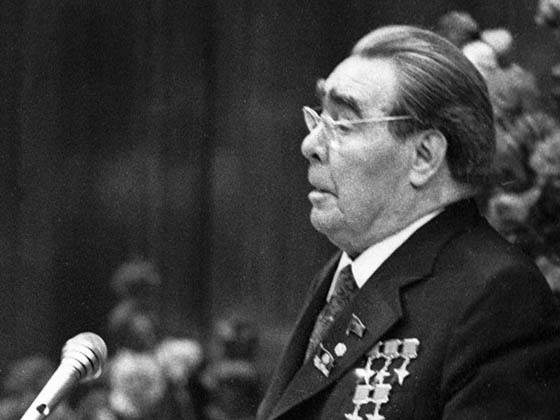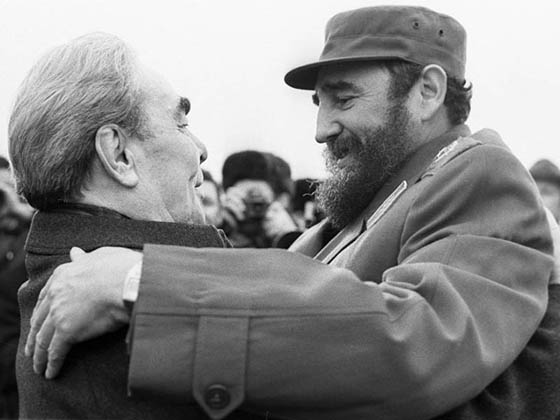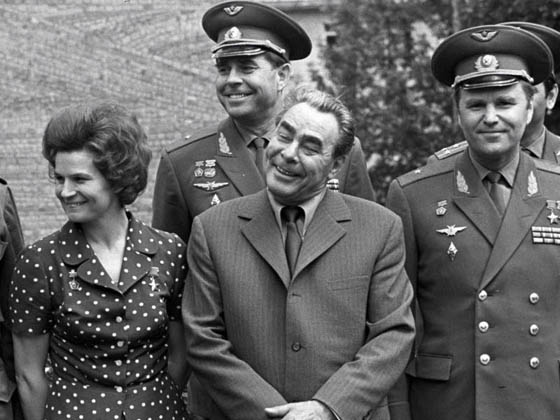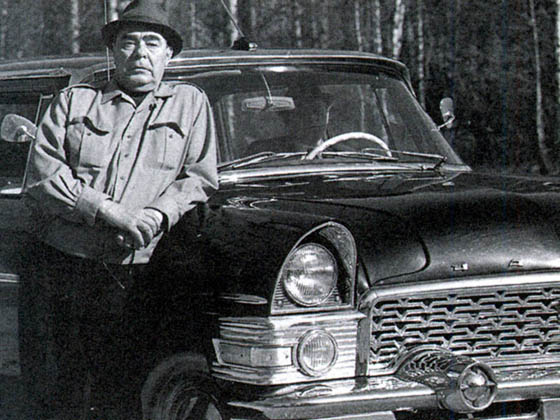Leonid Ilyich Brezhnev ran the USSR from 1964 to 1982.
Leonid Brezhnev was born on January 1st, 1907 (December 19th, 1906) in Kamenskoye (currently, the city of Dneprodzerzhinsk), Ekaterinoslavskaya province. His father’s name was Ilya Yakovlevich, mother Natalia Denisovna. His spouse’s name was Viktoria Petrovna. The First Secretary of the CPSU Central Committee since 1964 (Secretary General since 1966) and Chairman of the Presidium of the USSR Supreme Soviet from 1960 to 1964, and from 1977 to 1982. Four times Hero of the Soviet Union, Hero of Socialist Labour.
His style was marked by conservatism. The bulk of the resources were used for the military-industrial complex. A high death rate and mass use of alcohol by the people were rampant. After 1985, the years of Brezhnev’s rule were defined as “the period of stagnation”. Leonid Brezhnev died in Moscow on November 10th, 1982.
The main events during Brezhnev’s rule:
- August 21st, 1968 – Introduction of the Warsaw Treaty Organization troops to Czechoslovakia
- 1968 – Nuclear weapon nonproliferation treaty
- 1969 – Soviet-Chinese border conflict on Damansky Island
- 1972 – Strategic Arms Limitation Treaty
- 1975 – Helsinki Declaration on Safety and Cooperation in Europe
- 1977 – Adoption of the third USSR Constitution
- 1979 – War in Afghanistan (ended in 1989)
- 1980 – 22nd Summer Olympic games in Moscow.
In 1977, the USSR adopted the Constitution, which became the last one in the history of the Soviet state. According to it, the scientific communism and Marx-Lenin doctrine were declared the official ideology, and the construction of the classless communistic society became the ultimate goal of social development. The principle of supremacy of the Soviets was put at the basis of the government organization, and the state was announced the main tool in building socialism and communism.
Also, the new constitution proclaimed social uniformity, strengthening of moral and political unity of social groups and social classes, formation of the Soviet people as a new historical group of people.
